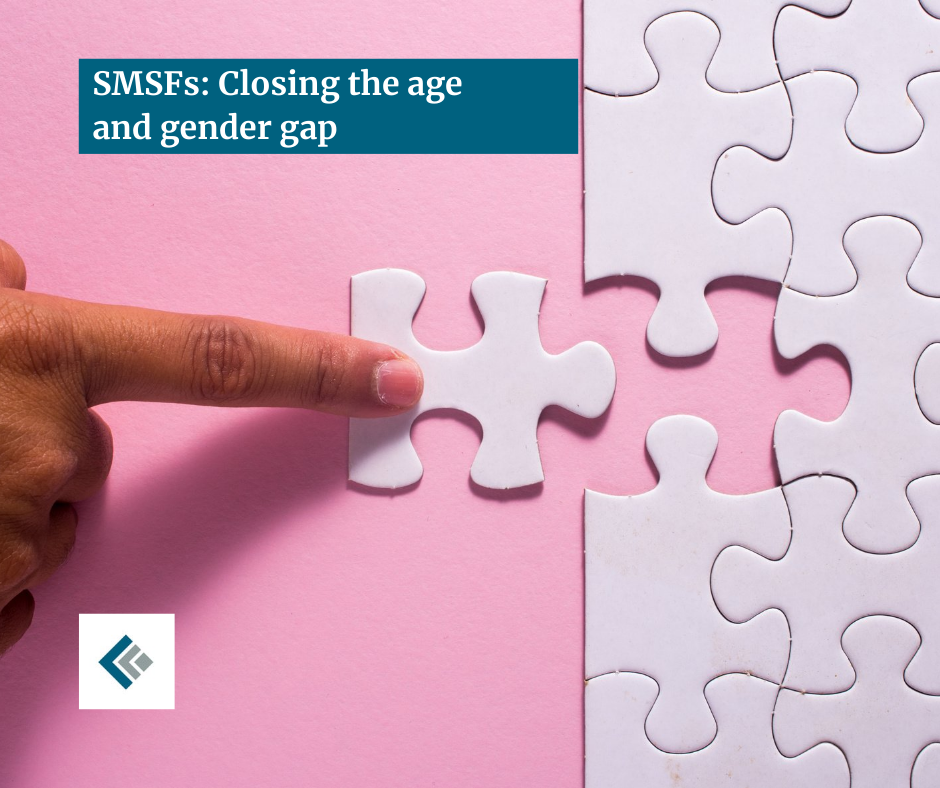
Australian shares are popular investments with retirees and those who need regular income streams. But what are Franking Credits and what benefit are they to you?

Australian shares are popular investments with retirees and those who need regular income streams. But what are Franking Credits and what benefit are they to you?

What are the arguments for and against having your own Self Managed Super Fund (SMSF)? We discuss in our latest post.

Buying insurance through superannuation has many advantages – but you need to make sure you are getting the right cover for your individual needs.

A recent ATO report showed Australians under the age of 45 now make up around 47% of all new SMSF trustees. So what’s driving younger people to SMSFs?

Investment scams reported to Scamwatch have cost Australians over $70 million in the first half of this year, more than the total losses reported to Scamwatch for all of 2020…

Spring has finally arrived and it’s the perfect time to refresh, reset and declutter your finances.

Legislation has passed, taking effect from 1 July 2021, which increases the number of members allowed in an SMSF from 4 to 6. How could this impact you?

The recent sharp rise in bond rates may not be a big topic of conversation around the Sunday barbecue, but it has set pulses racing on financial markets amid talk of inflation and what that might mean for investors.
US 10-year government bond yields touched 1.61 per cent in early March after starting the year at 0.9 per cent.i Australian 10-year bonds followed suit, jumping from 0.97 per cent at the start of the year to a recent high of 1.81 per cent.ii
That may not seem like much, but to bond watchers it’s significant. Rates have since settled a little lower, but the market is still jittery.
Bond yields have been rising due to concerns that global economic growth, and inflation, may bounce back faster and higher than previously expected.
While a return to more ‘normal’ business activity after the pandemic is a good thing, there are fears that massive government stimulus and central bank bond-buying programs may reinflate national economies too quickly.
Despite short-term interest rates languishing close to zero, a sharp rise in long-term interest rates indicates investors are readjusting their expectations of future inflation. Australia’s inflation rate currently sits at 0.9 per cent, half the long bond yield.
To quash inflation fears, Reserve Bank of Australia (RBA) Governor Philip Lowe recently repeated his intention to keep interest rates low until 2024. The RBA cut official rates to a record low of 0.1 per cent last year and launched a $200 billion program to buy government bonds with the aim of keeping yields on these bonds at record lows.iii
Governor Lowe said inflation (currently 0.9 per cent) would not be anywhere near the RBA’s target of between 2 and 3 per cent until annual wages growth rises above 3 per cent from 1.4 per cent now. This would require unemployment to fall closer to 4 per cent from the current 6.4 per cent.
In other words, there’s some arm wrestling going on between central banks and the market over whose view of inflation and interest rates will prevail, with no clear winner.
Bond prices have been falling because investors are concerned that rising inflation will erode the value of the yields on their existing bond holdings, so they sell.
For income investors, falling bond prices could mean capital losses as the value of their existing bond holdings is eroded by rising rates, but healthier income in future.
The prospect of higher interest rates also has implications for other investments.
In recent years, low-interest rates have sent investors flocking to shares for their dividend yields and capital growth. In 2020, US shares led the charge with the tech-heavy Nasdaq index up 43.6%.iv
It’s these high growth stocks that are most sensitive to rate change. As the debate over inflation raged, the so-called FAANG stocks – Facebook, Amazon, Apple, Netflix and Google – fell nearly 17 per cent from mid to late February and remain volatile.v
That doesn’t mean all shares are vulnerable. Instead, market analysts expect a shift to ‘value’ stocks. These include traditional industrial companies and banks which were sold off during the pandemic but stand to gain from economic recovery.
Against expectations, the Australian residential property market has also performed strongly despite the pandemic, fuelled by low-interest rates.
National housing values rose 4 per cent in the year to February, while total returns including rental yields rose 7.6 per cent. But averages hide a patchy performance, with Darwin leading the pack (up 13.8 per cent) and Melbourne dragging up the rear (down 1.3 per cent).vi
There are concerns that ultra-low interest rates risk fuelling a house price bubble and worsening housing affordability. In answer to these fears, Governor Lowe said he was prepared to tighten lending standards quickly if the market gets out of hand.
Only time will tell who wins the tussle between those who think inflation is a threat and those who think it’s under control. As always, patient investors with a well-diversified portfolio are best placed to weather any short-term market fluctuations.
If you would like to discuss your overall investment strategy, please reach out to the Sherlock Wealth team here to help look at what’s right for you.
i Trading economics, viewed 11 March 2021, https://tradingeconomics.com/united-states/government-bond-yield
ii Trading economics, viewed 11 March 2021, https://tradingeconomics.com/australia/government-bond-yield
iii https://www.reuters.com/article/us-oecd-economy-idUSKBN2B112G
v https://rba.gov.au/speeches/2021/sp-gov-2021-03-10.html
vi https://www.washingtonpost.com/business/2020/12/31/stock-market-record-2020/
vii https://www.corelogic.com.au/sites/default/files/2021-03/210301_CoreLogic_HVI.pdf

Responsible, ethical or sustainable investing – putting your money into companies or sectors that are aligned with your values – has been around for many years.

Separation and divorce can be a challenging time, often made all the more difficult when you have to divide your assets. So how do you go about decoupling your superannuation?
In years gone by, superannuation was not treated as matrimonial property, so divorce settlements typically saw the woman keeping the house as she generally had the children and the man keeping his super. In a sense, neither party won. She ended up with a house but no money for her retirement while he had nowhere to live but money for his later years.
To remedy this situation, since 2002 super can be included when valuing a couple’s combined assets for a divorce settlement. After all, these days super is probably your second largest asset after your family home.
While super is counted in the calculation of the total property, that does not mean it is mandatory to split the super – the choice is yours.
Unlike the early 2000s, both partners are likely to have superannuation these days although traditionally women will still tend to have lower balances.i On average, women retire with just over half the super balance of men and 23 per cent of women retire with no super at all.
As a result, many divorcing couples may end up splitting super along with their other property.
If you decide to split your super, then you have three avenues, but keep in mind that all require legal advice.
The three ways to split your super are:
A court order is the last resort if you can’t agree on a property settlement.
You can split your super as you choose both in terms of the amount and the timing. You can split it as a percentage or as an agreed figure and you can choose to split it immediately or at some time in the future. Much will depend on each of your life stages.
But whatever you decide, you MUST comply with the superannuation laws. Money received from your partner’s super must be kept in super unless you satisfy a condition of release. You also need to be mindful of taxable and non-taxable components and divide them equally.
Say the superannuation balances of a couple is $500,000 with John having $400,000 and Susie $100,000. If the property settlement on divorce was decided as a straight 50:50 split and it included the super, then John would need to give $150,000 of his super to Susie.
Susie would nominate a fund and the money would be transferred.
If you have a binding financial agreement or a court order, this transfer of assets from one fund to another will not trigger a CGT event. But if you don’t have such an agreement, then John would trigger a CGT event on the $150,000 he transferred. Susie, meanwhile, would have the advantage of resetting the cost base on her received $150,000. So, a win for Susie, but not for John.
If John happened to be in the pension phase but Susie was still too young, the money that is transferred from his super to Susie will be treated according to his situation. As a result, Susie would be able to access the money before she reached preservation age.
If you have a self-managed super fund, the situation could get a little more complicated as you have to deal with the issue of trusteeship.
If there are only two members/trustees in the fund and Susie chose to leave, then John would either have to find a new trustee within six months or change to a corporate trustee where he could be the sole director.
Assets within an SMSF can also prove an issue, particularly if a sizeable proportion of the fund was tied up in a single asset such as commercial premises. How easy would it be to sell the premises? What if the property was John’s business premises and the means by which John was in a position to pay Susie child support? These are questions that need addressing.
If you are in the process of divorce or considering it, please reach out to the Sherlock Wealth team here to help you plan your finances before and after the event.